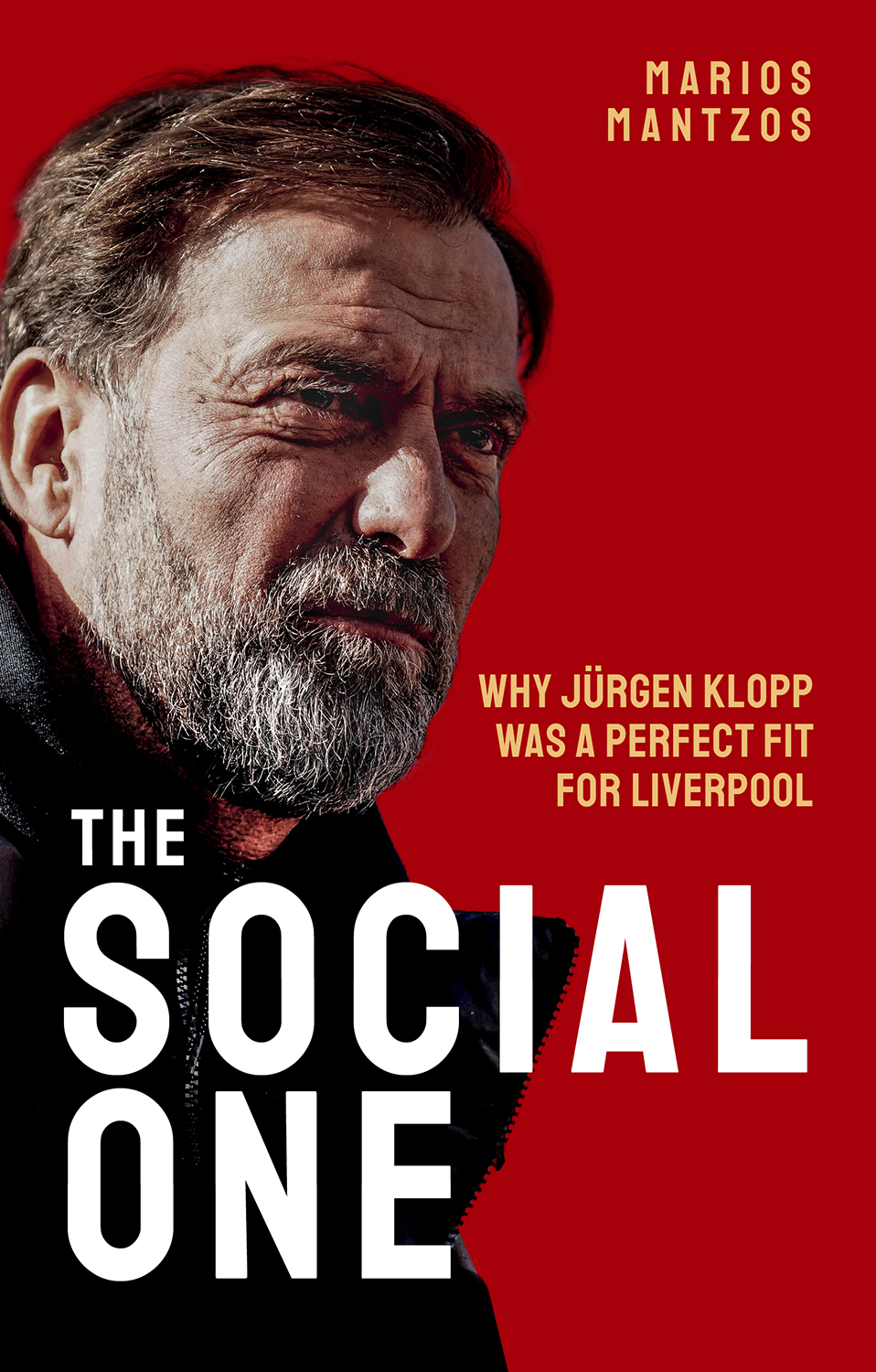The Social One: Why Jürgen Klopp was a perfect fit for Liverpool
Speaking about sports and football in terms of politics involves a significant risk. In a bloodthirsty society, words such as socialism can easily put a wrong label on a book, since, as you can easily comprehend through discussing with people and interpreting their way of thinking, there are only a handful of people out there who can treat notions as symbols rather than as indications of a certain philosophy of life. Besides, the writer's political views lack any importance whatsoever.

By MARIOS MANTZOS ***
Nowadays, football has turned into a powerful global industry, in which natural persons and legal entities invest money recklessly, to maximise their profits, in a show of bigotry and financial looting that entices the protagonists of the sport, the footballers, who see absurd amounts of money being deposited in their bank accounts week by week. At the altar of money, many times of black money, our unfortunate football becomes the golden fleece and turns into cynical business.
It is true that the capitalist function of modern football bears no resemblance to the vision of the 19th- century English working class. In practice, however, on the pitch, is it that far from it? Eleven people work together harmoniously, playing with and for each other, aiming to achieve a common goal, with the active participation of thousands of people from the stands. They will reap the joy of victory together, they will celebrate it together, they will suffer and feel the bitterness of defeat together. The quote 'team comes first' sounds so clichéd that we rarely get into the process of thinking and realising it. But, indeed, in football, the ultimate team sport, the team comes first. It is true that football is a sport in which the best team does not always win. But this is the magic of football; it gives players of every level the opportunity to contribute to a team, to become an equal member of an organised plan and to achieve a common goal with their team-mates. If a political term can summarise this and match the essence of football that is obviously socialism.
If you've got useful players and you get them all to do the little things that they can do well and you marry them all together, it's a form of socialism without politics, of course. They're all helping each other.
Bill Shankly, the man to whom these words belong, is a timeless symbol of the socialist approach to football, distancing himself as much as necessary from politics. And his legacy seems to be the answer to the eternal question 'why Liverpool?' that is posed by those who fail to realise what can really charm a man born in the 90s to a team that missed league glory for 30 whole years.
The Scot was not just a manager who took Liverpool from the Second Division and made them world-class champions. He was the one who spoke as much as anyone to the soul of the city, to the heart of the working class, the man who 'made people happy', as written on his imposing statue outside Anfield. Since the mid-1960s, Liverpool's red football team has acquired a clear identity and formed a fan community, inextricably linked to the city's left-wing political approach, in a country that has always had a conservative drive.
Bill Shankly said goodbye to Liverpool in 1974 with three league championships, two FA Cups and one UEFA Cup, paving the way for assistant Bob Paisley, then Joe Fagan and Kenny Dalglish, who won a total of ten league titles and six European trophies until 1990. After that, the greatest team in England and Europe in the 70s and 80s went through a long period of drought that no one could have imagined would last three whole decades. Winning the UEFA Cup in 2001 with a golden own goal against Alavés and the legendary Champions League four years later with the unprecedented comeback against AC Milan in Istanbul, together with three FA Cup and an equal number of League Cup trophies were the only cracks of happiness in Liverpool until 2019 and 2020, the year of the big return to the European and British throne, respectively.
Thirty whole years for a league title. Why so many? Why had no one done it since Dalglish? Why did teams such as Blackburn Rovers and Leicester City stare at the Premier League trophy in their museum while Liverpo waited? Why should Federico Macheda score the goal of his life in 2009? Why should Steven Gerrard slip in 2014 Curse? Fate? Destiny?
Arranging facts, data and situations in a logical order, the harmony with which they relate, even if they have nothing to do with each other, spontaneously leads you to the eternal, secret belief that in life everything has an explanation and happens for a reason. Although it sounds like a purely religious point of view, everyone interprets it in their own way and judges accordinglyThis book deals with a person who has deeply adopted this Aristotelian approach that 'everything in life happens for a good reason. One day we will find out why.It is this person who has watered Liverpool with the coveted nectar of success.
Jürgen Klopp is not just a football coach or the saviour who finally managed to bring the Premier League trophy to Merseyside. He is the one who makes you believe for the first time and say freely, without a sense of sacrilege, that Liverpool, about 40 years later, found the closest they could to Bill Shankly. Clearly different, much more modern, but so common.
Liverpool not only regained their lost love with trophies but became the most mainstream football club in the world, coming out of obscurity and abandoning the loser label that followed them for years. It is not so much their performances on the pitch; it is not the fired-up offensive line; it is not purely football. It is the way. The honest, romantic, but modern way in which Jürgen Klopp chose to manage Liverpool and make them more than just a champion team.

*** this is a part of the introduction of the book about Klopp “the social one”
by Marios Mantzos that is already in all the book stores by PITCH PUBLISHING.


























